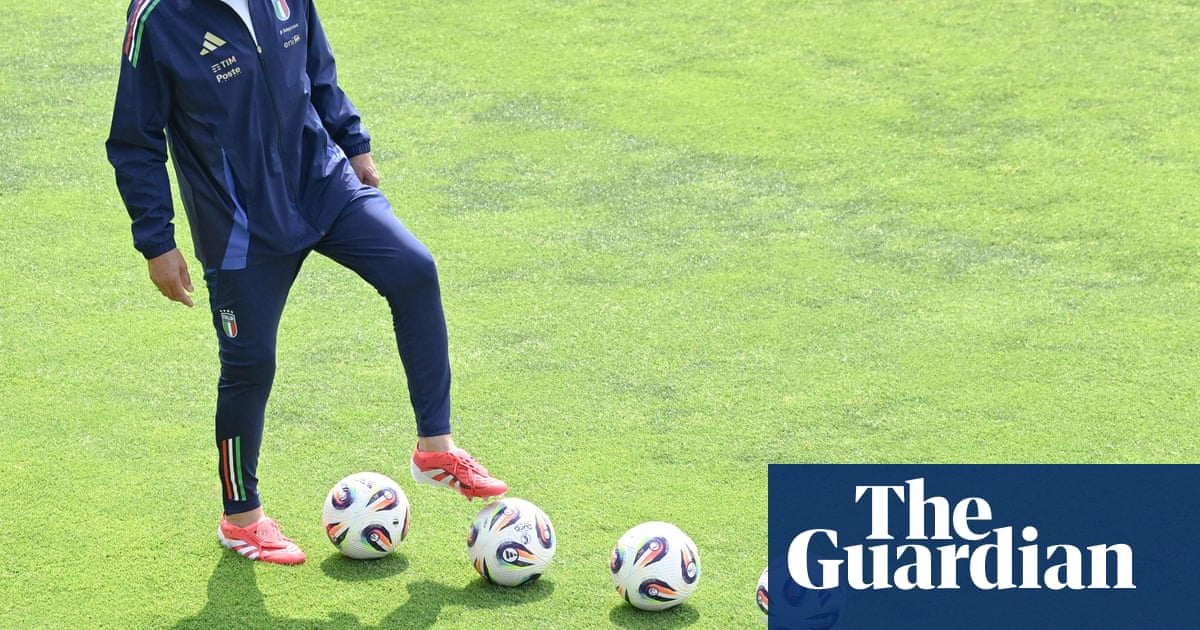When Italy were humbled by Norway in their opening World Cup qualifier on Friday night, the response fromGazzetta dello Sport was as measured as you would expect. “ENOUGH!” screamed the pink paper’s front-page headline the next day, while the lengthy howl of anguish over which it appeared declared that the country’s “World Cup is already at risk”. While Luciano Spalletti had been bullish in the immediate aftermath of his knack-ravaged side’s 3-0 defeat in Oslo, on Sunday he cut a far more forlorn figure as he appeared alone before a bloodthirsty press-pack to preview the qualifier against Moldova, unaccompanied by any of his players or even a simpering national team media handler.
“I spoke with [Italian FA chief suit Gabriele] Gravina last night and he informed me that I will be relieved of my duties as national team coach,”Spalletti sniffed, salty tears visible as his hawk-eyed not-quite-former Signor Gravina peered his way from the front row. “I am disappointed: given the relationship we have, I had no intention of stepping down. Especially when things are not going well, I would have preferred to stay and do my job. However, it is a dismissal and I have to accept it. I have always seen this role as a service to my country and I want to facilitate the future of the national team. I think it is right to seek the best solution.” While Italian panic at the prospect of missing out on a third consecutive World Cup is as understandable as it is stereotypical, it could be argued the knee-jerk decision to bundle Spalletti out of the door marked Do One is more than a little shabby and not just because he had to announce his own dismissal and will still be in charge later, when Italy host Moldova.
Having masterminded Napoli’s firstscudettoin 33 years two seasons ago, the first thing he did was get a memento of the achievement indelibly inked on his left forearm before announcing he would be taking a 12-month sabbatical, citing exhaustion. Just a couple of months later, he agreed to leave the Tuscan farm that is his happy place and step into the Italian managerial breach after a Roberto Mancini-shaped hole was left in the national FA’s exit door when his head was turned, Exorcist-style, by a megabucks offer from Saudi Arabia. Hampered by knack and lengthy suspensions to key players, Spalletti’s reign has not been plain sailing and many felt he ought to have been binned off following theAzzurri’s meek exit from Euro 2024. Instead, the powers that be let him continue in his post before pulling the trigger after just one setback in World Cup qualifying.
Having jettisoned the 66-year-old Spalletti, Italy have set their sights on a comparative novice in Claudio Ranieri, actually 73. Despite his advancing years, The Tinkerman was fit enough to move upstairs to a directorial role at Roma last month without the help of the engineers at Stannah, and is believed to be up for the job of managing Italy, as long as he doesn’t have to give up his advisory role with theGiallorossi. Should he take up the cudgels reluctantly laid down by Spalletti, his first game in charge will be at home to Estonia in September. Italy’s players can expect to be dilly-dinged and dilly-donged into serious action if they are to avoid the ignominy of missing their third World Cup in a row.
Join Michael Butler at 7.45pm (BST) for World Cup qualifying updates on Belgium 2-1 Wales.
If you do have any, please send letters tothe.boss@theguardian.com.Today’s winner of our prizeless letter o’ the day is … Kev McReady. Terms and conditions for our competitions, when we run them, can be viewedhere.
Listen up!It’s the latest episode of Football Weekly.
This is an extract from our daily football email … Football Daily. To get the full version,just visit this page and follow the instructions.
